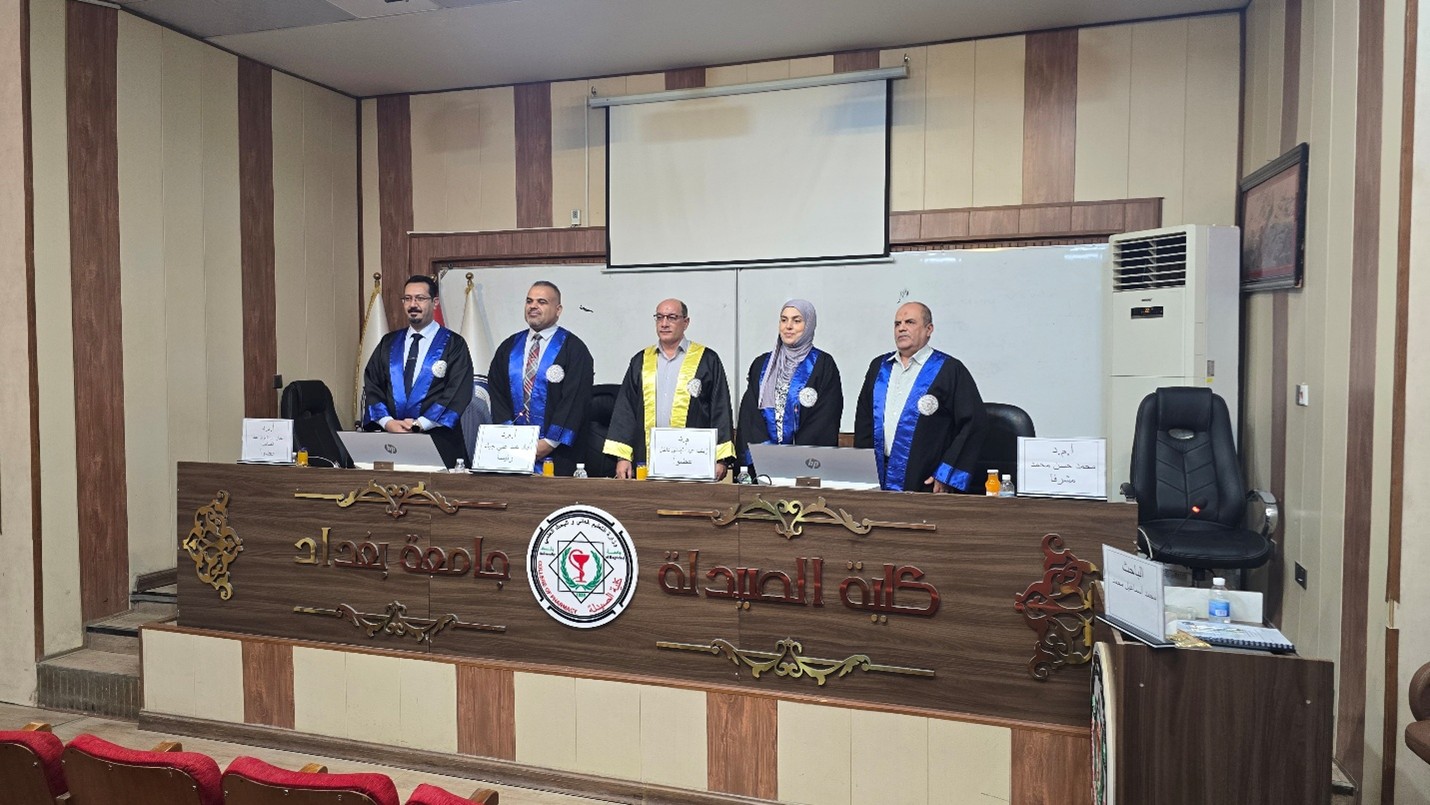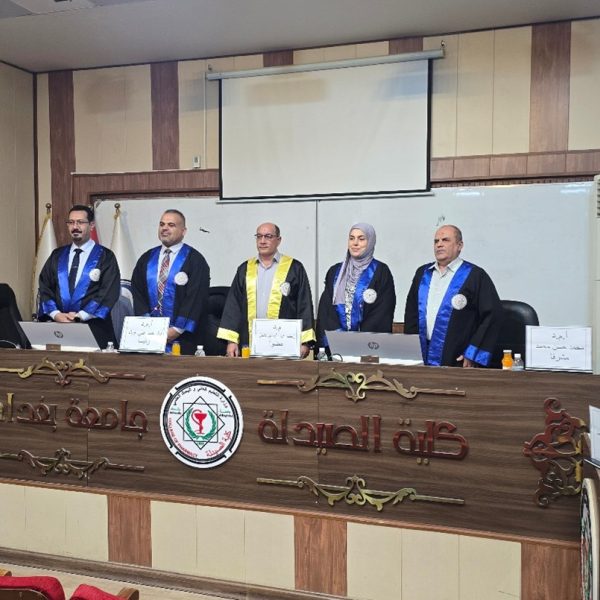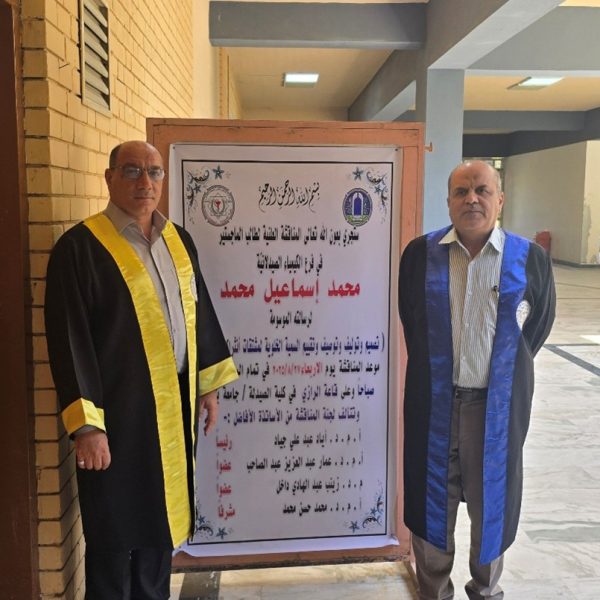The College of Pharmacy discussed the MSc thesis entitled “Design, Synthesis, Characterization & Cytotoxic Evaluation of New Anthraquinone Derivatives”, by the student Mohammed Ismail Mohammed and his supervisor, Assistant Professor Dr. Mohammed Hassan Mohammed at the Pharmaceutical Chemistry Department.
This Molecular modeling study using the Maestro Schrodinger platform was conducted to evaluate the binding affinity of designed molecules toward VEGFR2 and topoisomerase II. Promising molecules were then synthesized, purified, and characterized spectroscopically. Their preliminary antiproliferative activity was assessed against human breast and lung cancer cells using an MTT assay.
The study included organic synthesis utilizing conventional chemical reactions, which involve cyclization of the thiosemicarbazide using carbon disulfide and potassium hydroxide to give 2-amino-5-mercapto 1, 3, 4 thiadiazol, followed by the s-alkylation reaction by using different benzyl chloride derivatives, to produce various types of amines, then these amines are reacted with anthraquinone 2-carboxylic acid by using thionyl chloride as a coupling agent to give the final compounds (MI1-MI9).
The results showed that the cytotoxic effect on breast cancer cells viability test indicated that the IC50 of compounds MI1-MI9 were 2.95 µg/ml, 33.5 µg/ml, 41.38 µg/ml, 56.61 µg/ml, 62.2 µg/ml, 54.56 µg/ml, 46.51 µg/ml, 3.00 µg/ml, 26.41 µg/ml, respectively, while the IC50 for sunitinib and doxorubicin were 2.89 µg/ml and 6.89 µg/ml, respectively. The cytotoxic effect on lung cancer cells viability test indicated that the IC50 of compounds MI1-MI9 were 2.87 µg/ml, 4.95 µg/ml, 48.01 µg/ml, 25.71 µg/ml, 63.28 µg/ml, 64.11 µg/ml, 65.56 µg/ml, 4.10 µg/ml, 4.51 µg/ml, respectively, while the IC50 for sunitinib and doxorubicin were 2.83 µg/ml and 3.00 µg/ml, respectively.
The study recommended to refine compound structures through SAR studies to create novel, more selective anthraquinone derivatives, use molecular dynamics simulations to evaluate ligand-target interaction stability, conduct in vitro enzyme inhibition assays to assess activity and selectivity and test antiproliferative activity on various cancer cell lines and animal tumor models to evaluate cytotoxicity.





